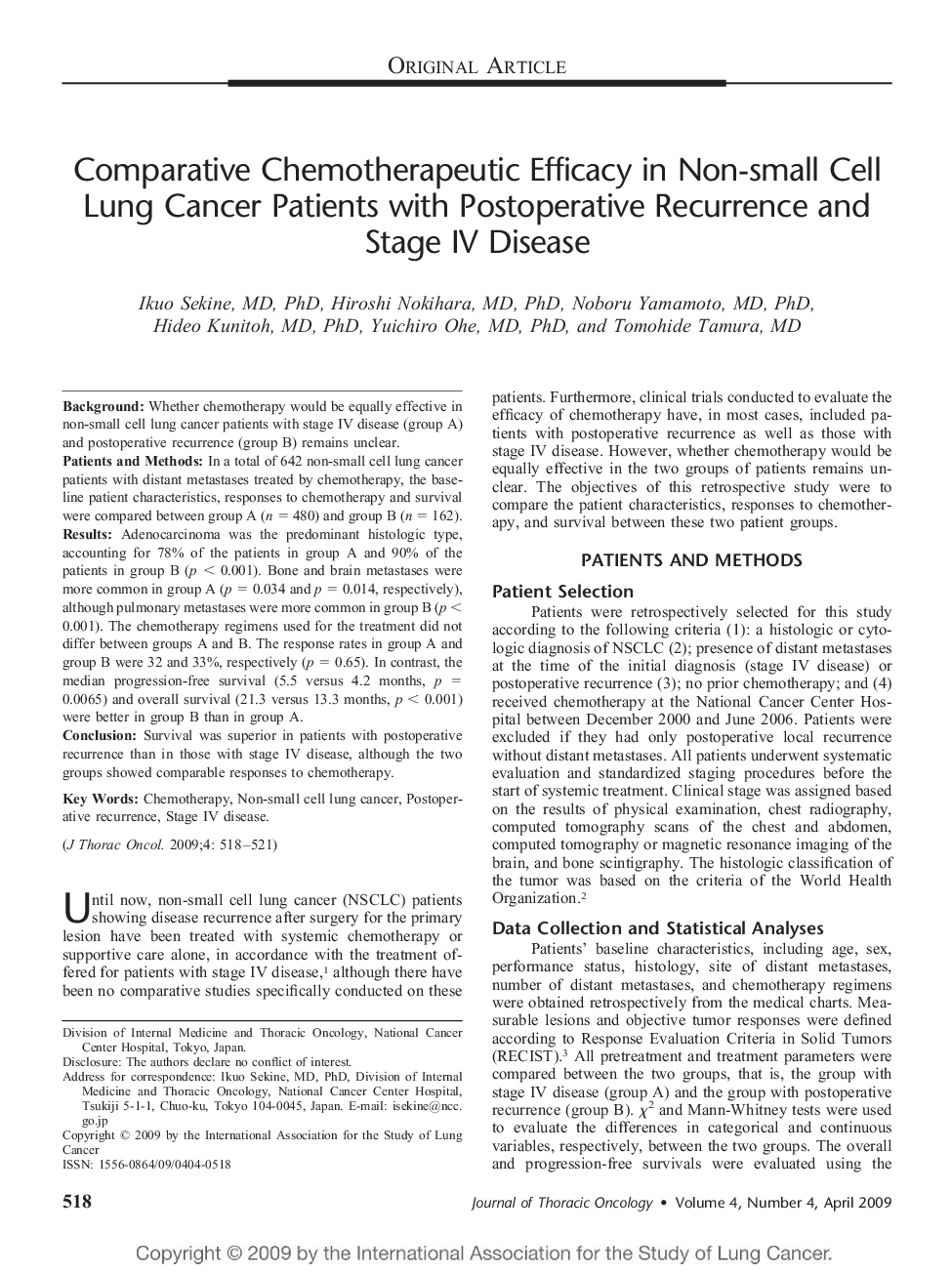| Article ID | Journal | Published Year | Pages | File Type |
|---|---|---|---|---|
| 3992281 | Journal of Thoracic Oncology | 2009 | 4 Pages |
BackgroundWhether chemotherapy would be equally effective in non-small cell lung cancer patients with stage IV disease (group A) and postoperative recurrence (group B) remains unclear.Patients and MethodsIn a total of 642 non-small cell lung cancer patients with distant metastases treated by chemotherapy, the baseline patient characteristics, responses to chemotherapy and survival were compared between group A (n = 480) and group B (n = 162).ResultsAdenocarcinoma was the predominant histologic type, accounting for 78% of the patients in group A and 90% of the patients in group B (p < 0.001). Bone and brain metastases were more common in group A (p = 0.034 and p = 0.014, respectively), although pulmonary metastases were more common in group B (p < 0.001). The chemotherapy regimens used for the treatment did not differ between groups A and B. The response rates in group A and group B were 32 and 33%, respectively (p = 0.65). In contrast, the median progression-free survival (5.5 versus 4.2 months, p = 0.0065) and overall survival (21.3 versus 13.3 months, p < 0.001) were better in group B than in group A.ConclusionSurvival was superior in patients with postoperative recurrence than in those with stage IV disease, although the two groups showed comparable responses to chemotherapy.
